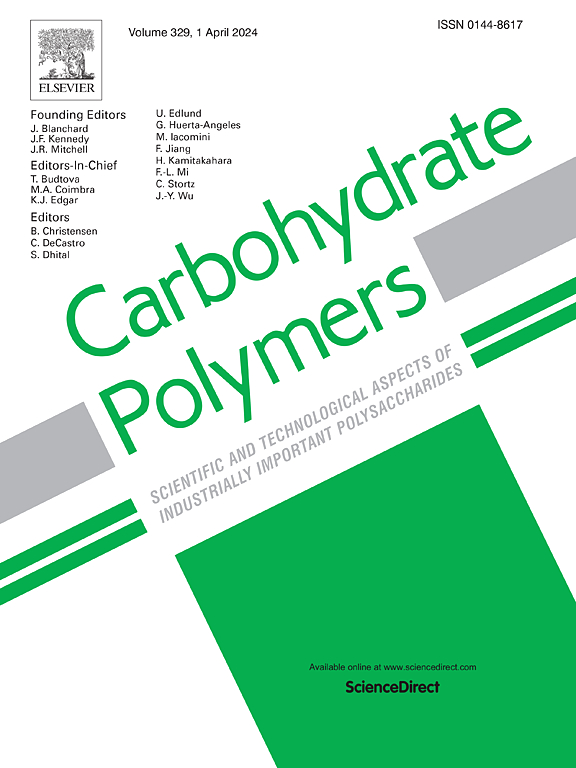Refined regulation of polysaccharide biosynthesis in edible and medicinal fungi: From pathways to production
IF 10.7
1区 化学
Q1 CHEMISTRY, APPLIED
引用次数: 0
Abstract
Polysaccharides derived from edible and medicinal fungi (EMF) exhibit various biological activities, rendering them useful in the pharmaceutical, nutraceutical, and food industries. However, their intricate biosynthetic pathways limit their potential, necessitating a deeper understanding of their structure–function relationships. Ganoderma lucidum has emerged as a key model for elucidating polysaccharide biosynthesis in EMF. In this paper, we present a comprehensive review of the current state of research on EMF polysaccharide biosynthesis from the perspective of structure and biosynthetic pathways, and concentrate on strategies for enhancing the precise regulation of polysaccharide production. The complexity of these structures, governed by a refined biosynthetic pathway, is crucial for determining their functional diversity. This review highlights three key strategies for enhancing polysaccharide production. Genome-scale metabolic remodeling is useful for the systematic design and optimization of pathways, while profiling metabolic remodeling regulates critical genes and metabolic nodes. The regulation of enzyme activity, particularly glycosyltransferases and glycoside hydrolases, can enhance biosynthetic efficiency. Furthermore, this review identifies several future challenges pertaining to polysaccharide synthesis. We establish a robust foundation for the advanced bio-manufacturing of polysaccharides, and provide theoretical guidance, along with empirical support, to precisely regulate polysaccharide synthesis in EMF, underscoring their significance as functional foods.

求助全文
约1分钟内获得全文
求助全文
来源期刊

Carbohydrate Polymers
化学-高分子科学
CiteScore
22.40
自引率
8.00%
发文量
1286
审稿时长
47 days
期刊介绍:
Carbohydrate Polymers stands as a prominent journal in the glycoscience field, dedicated to exploring and harnessing the potential of polysaccharides with applications spanning bioenergy, bioplastics, biomaterials, biorefining, chemistry, drug delivery, food, health, nanotechnology, packaging, paper, pharmaceuticals, medicine, oil recovery, textiles, tissue engineering, wood, and various aspects of glycoscience.
The journal emphasizes the central role of well-characterized carbohydrate polymers, highlighting their significance as the primary focus rather than a peripheral topic. Each paper must prominently feature at least one named carbohydrate polymer, evident in both citation and title, with a commitment to innovative research that advances scientific knowledge.
 求助内容:
求助内容: 应助结果提醒方式:
应助结果提醒方式:


